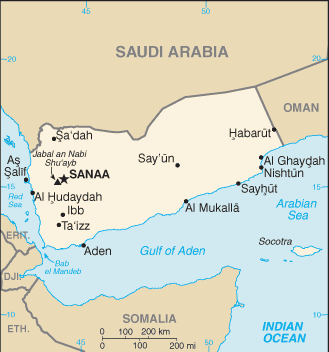The poorest country in the Middle East, and one that has to import some 90 percent of its food from abroad, Yemen obviously wasn’t in great shape ahead of the Saudi war. Tack of a month-long naval blockade, and the situation is increasingly dire.
 Hospitals in the Yemeni capital of Sanaa, out of fuel for their ambulances, are begging anyone who still has fuel to pick up the injured from Saudi airstrikes to bring them in for treatment. Once there, shortages of key medications make the treatment hit-or-miss.
Hospitals in the Yemeni capital of Sanaa, out of fuel for their ambulances, are begging anyone who still has fuel to pick up the injured from Saudi airstrikes to bring them in for treatment. Once there, shortages of key medications make the treatment hit-or-miss.
The big story, increasingly, is food however. The naval blockade has been holding up cargo ships off the coast for protracted amounts of time, and entry is far from assured. This has led many of the companies that traditionally ship food to Yemen that they can’t take the jobs until the war is resolved.
The Saudi and Egyptian navies have been aggressive about limiting ships reaching the Yemeni coast, and even aid groups have struggled to get permission to deliver humanitarian aid. In this environment private shippers with a cargo of wheat don’t stand a chance.
The UN World Food Program warned of price increases and said it is using its own stocks in the country to try to keep the situation calm. Locals reported a bag of flour that pre-war would’ve cost 6,000 Rials ($28 US) quickly rose to 10,000 Rials when the blockade began. Now, finding flour for sale at all is virtually impossible.
Warnings that a humanitarian crisis could rapidly become an outright calamity are increasingly common, and with the war looking increasingly like it’s a long one, mass starvation increasingly looks like an inevitability for those on the ground.
Saudi-backed officials from the former Hadi government also declared a state of emergency in some southern cities of Yemen, though notably they did not mention the blockade, instead complaining about the Houthis resisting their attempts to seize those cities.


